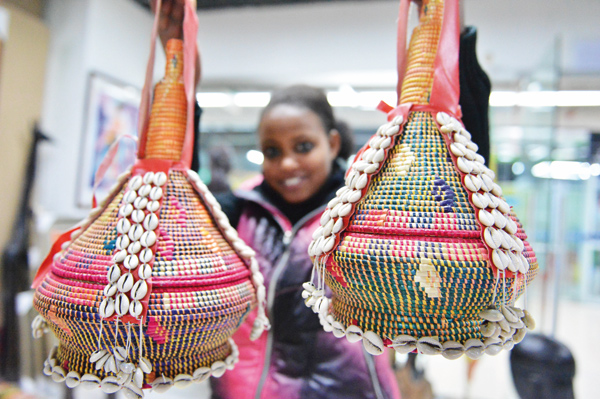China's investment in Africa brings it a bright future: blogger
By Han Dongping (chinadaily.com.cn) Updated: 2015-11-27 17:16
 |
|
China's trade with African states has grown about ten times in the last decade, with the total value likely to hit $300 billion this year, according to the Fourth China-Africa Industrial Forum, which opened in November 2015 in Beijing. [Photo/Agencies] |
President Xi Jinping will be visiting Zimbabwe and South Africa between December 1 and 5. This will be the second visit ever to Zimbabwe by a Chinese head state. It will be an important event in the history of Sino-African cooperation. Mr. Mugabe, President of Zimbabwe, who considers China the greatest friend, hopes that President Xi’s visit would further promote cooperation between the two countries.
After visiting Zimbabwe, President Xi will also attend the sixth ministerial meeting of the China-Africa Cooperation Forum in South Africa. South Africa is a member of the BRICS countries, and is one of the most important economies in Africa. The President’s attendance at the ministerial meeting of China-Africa Cooperation Forum signifies the importance of the cooperation between China and Africa in the future.
In the last few decades, China has been investing in infrastructure, manufacturing, energy and agriculture, which are urgently needed in Africa. The Chinese Government invited all African leaders to a summit in Beijing in 2009 to discuss and consult with African leaders what China could do to help African people. No other country has ever done anything like this. China is able to do this because China is a third world country itself. As a third world country, China understands what it is like to struggle to overcome the destructive legacies of Western colonialism in places like Africa. African states and people welcome China’s investment and help, because what China brings to Africa is just what African states and African people need.
Some Western observers and commentators are very jealous of China’s success in Africa. Out of maliciousness, they call the Chinese investment in Africa neocolonialism. These people simply do not know what they are talking about. Unlike Western colonialism, China’s investment in Africa did not cause a dramatic decline of the native population, unlike Western colonialism. Unlike former colonial masters, Chinese engineers and workers do not treat native people as second class citizens. They are working alongside African workers, training them and eating the same food as them. Unlike Western colonial practices, wealth has not been plundered from Africa to enrich the metropole. The highways, factories and sports facilities Chinese firms built, will stay there to benefit the African state and people for a long time to come.
There is no doubt that China has also benefited from its investment in Africa. China helps African nations build the infrastructure they need to develop their future, and African nations pay China for the services China provides with some of the natural resources China helps African nations explore and develop. That is what China calls a win-win situation, which is mutually beneficial. It is a fair trade between African nations and Chinese firms that are willing to invest in Africa, and the basis on which a mutually beneficial relationship can last.
I watched a Movie entitled “When China Met Africa” with my American students, and some African American friends. The Movie was made by Bullfrog, who documented Chinese farmers investing in agriculture in Zambia, and an engineering firm from Henan building a highway, and another firm building a smelting plant, also in Zambia. I asked my American students and my African American friends if they are willing to work that hard in the harsh conditions like the Chinese workers and farmers. None of them can give me a positive answer. Many Americans shun hard physical labor even in their own country, let alone hard physical labor in a faraway place. I want to commend the hard working Chinese farmers and engineers. They are doing great work for African people. Their hard work will bring a bright future to Africa.
The author is a professor of Warren Wilson College and guest professor of Hebei University.











